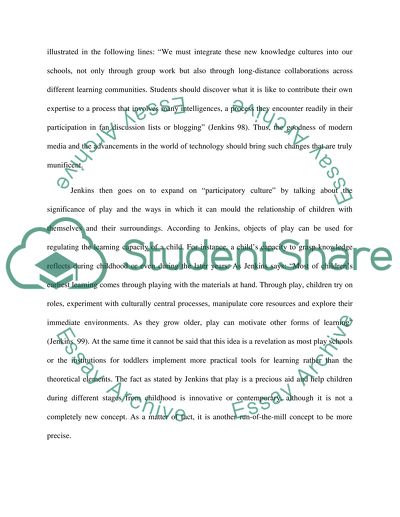Cite this document
(“Participatory Culture of Henry Jenkins Essay Example | Topics and Well Written Essays - 1000 words”, n.d.)
Retrieved from https://studentshare.org/english/1627760-participatory-culture-of-henry-jenkins
Retrieved from https://studentshare.org/english/1627760-participatory-culture-of-henry-jenkins
(Participatory Culture of Henry Jenkins Essay Example | Topics and Well Written Essays - 1000 Words)
https://studentshare.org/english/1627760-participatory-culture-of-henry-jenkins.
https://studentshare.org/english/1627760-participatory-culture-of-henry-jenkins.
“Participatory Culture of Henry Jenkins Essay Example | Topics and Well Written Essays - 1000 Words”, n.d. https://studentshare.org/english/1627760-participatory-culture-of-henry-jenkins.


